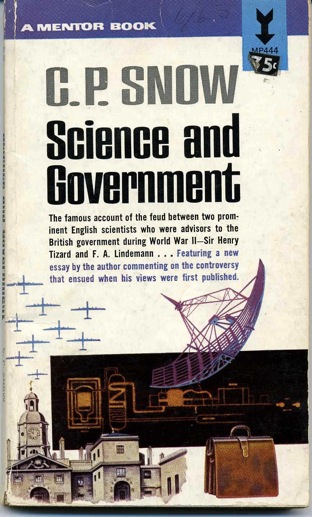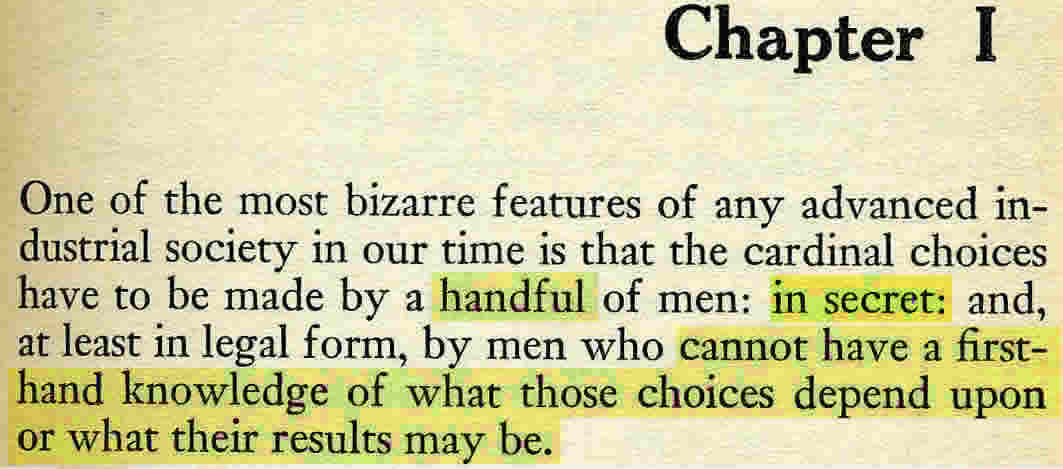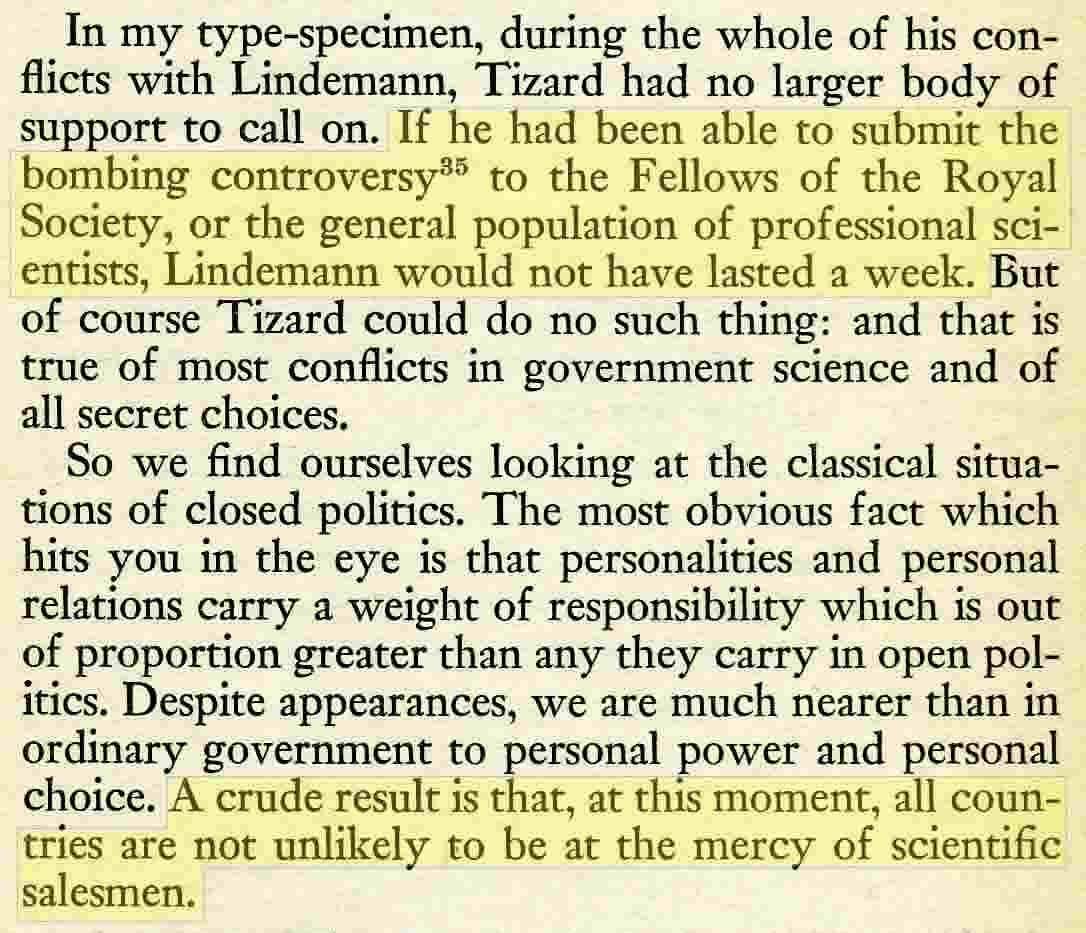
Page 1

Page 53

Snow, C. P., 1962. Science and government (from the Godkin lectures at Harvard University, 1960). vii+128 pp. pp. New York: New American Library / Mentor (by arrangement with Harvard University Press).
|
Page 1 Page 53 |
Excerpts:
[p.9, opening paragraph,
punctuation sic] One of the most bizarre features of any advanced industrial
society in our time is that the cardinal choices have to be made by a handful
of men: in secret: and, at least in legal form, by men who cannot have
a first-hand knowledge of what those choices depend upon or what their results
may be.
[p.9, from para. 3] It is in the making of weapons of absolute destruction
that you can see my central theme at its sharpest and most dramatic, or
most melodramatic
if you like. But the same reflections would apply to a whole assembly of
decisions which are not designed to do harm. For example, some of the most
important choices
about a nation's physical health are made, or not made, by a handful of
men, in secret, and, again in legal form, by men who normally are not able
to
comprehend the arguments in depth.
This phenomenon of the modern world is, as I say, bizarre. We have got
used to it, just as we have got used to so many results of the lack of
communication
between scientists and nonscientists, or of the increasing difficulty of
the
languages of science itself. Yet I think the phenomenon is worth examining.
A good deal of the future may spring from it.
[p11, final para. of Ch. 1] No one that I have read has found the right
answers. Very few have even asked the right questions. The best I can do
is tell a
story. The story is intended to contain a little of something which actually
did happen.
I shall not pretend that the story is not supposed to bear some relation
to our present problems. I shall try to extract a few generalisations from
it, or, to
be more sensible, a few working rules.